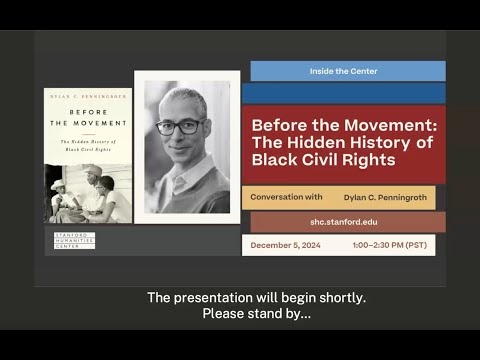by Ourania Filippakou
Across global higher education, the terms of justice, equality and inclusion are being rewritten. In recent years, the rollback of diversity, equity and inclusion (DEI) initiatives in the United States (Spitalniak, 2025) has unfolded alongside a global resurgence of anti-gender, ultra-nationalist, racialised and colonial politics (Brechenmacher, 2025). At the same time, the rise of authoritarian and far-right ideologies, together with deepening socioeconomic inequalities fuelled by an ascendant billionaire class (Klein and Taylor, 2025) and the growing portrayal of feminist and queer scholarship as ideological extremism (Pitts-Taylor and Wood, 2025), signal a profound shift in the rationalities shaping the politics of higher education. These developments do not reject inclusion; they refashion it. Equality becomes excess, dissent is recast as disorder, and inclusion is reconstituted as a technology of governance.
This conjuncture, what Stuart Hall (Hall in Hall and Massey, 2010, p57) would call the alignment of economic, political and cultural forces, requires a vocabulary capable of capturing continuity and rupture. It also reflects the deepening crisis of neoliberalism, whose governing logics become more coercive as their legitimacy wanes (Beckert, 2025; Menand, 2023). As Hall reminds us, ‘a conjuncture is a period when different social, political, economic and ideological contradictions… or as Althusser said ‘fuse in a ruptural unity’’ (Hall in Hall and Massey, 2012, p57). A conjuncture, in this sense, does not resolve crisis but produces new configurations of ideological coherence and institutional control. In my recent article, ‘Managed Inclusion and the Politics of Erasure: Gender Governance in Higher Education under Neoliberal Authoritarianism’ (Review of Education, Pedagogy & Cultural Studies, 2025), I theorise these developments as a global grammar of illiberal inclusion: a political rationality that appropriates the language of equity while disabling its redistributive, democratic and epistemic force. The article develops a typology of symbolic, technocratic and transformative inclusion to examine how feminist, anti-caste and critical vocabularies are increasingly absorbed into systems of civility, visibility and procedural control. Transformative inclusion, the configuration most aligned with redistribution, dissent and epistemic plurality, is the one most forcefully neutralised.
Across geopolitical contexts, from postcolonial states to liberal democracies, gender inclusion is increasingly appropriated not as a demand for justice but as a mechanism of control. The techniques of co-option vary, yet they consolidate into a shared political rationality in which equity is stripped of redistributive force and redeployed to affirm institutional legitimacy, nationalist virtue and market competitiveness. This is not a rupture with neoliberal governance but its intensification through more disciplinary and exclusionary forms. For example, in India, the National Education Policy 2020 invokes empowerment while enacting epistemic erasure, systematically marginalising the knowledges of women from subordinated caste, class and religious communities (Peerzada et al, 2024; Patil, 2023; Singh, 2023). At the same time, state-led campaigns such as Beti Bachao elevate women’s visibility only within ideals of modesty and nationalist virtue (Chhachhi, 2020). In Hungary, the 2018 ban on gender studies aligned higher education with labour-market imperatives and nationalist agendas (Barát, 2022; Zsubori, 2018). In Turkey, reforms under Erdoğan consolidate patriarchal norms while constraining feminist organising (Zihnioğlu and Kourou, 2025). Here, gender inclusion is tolerated only when it reinforces state agendas and restricts dissent.
Elsewhere, inclusion is recast as ideological deviance. In the United States, the Trump-era rollback of DEI initiatives and reproductive rights has weaponised inclusion as a spectre of radicalism, disproportionately targeting racialised and LGBTQ+ communities (Amnesty International, 2024; Chao-Fong, 2025). In Argentina, Milei abolished the Ministry of Women, describing feminism as fiscally irresponsible (James, 2024). In Italy, Meloni’s government invokes ‘traditional values’ to erode anti-discrimination frameworks (De Giorgi et al, 2023, p.v11i1.6042). In these cases, inclusion is not merely neutralised but actively vilified, its political charge reframed as cultural threat.
Even when inclusion is celebrated, it is tethered to respectability and moral legibility. In France, femonationalist discourses instrumentalise gender equality to legitimise anti-Muslim policy (Farris, 2012; Möser, 2022). In Greece, conservative statecraft reframes inclusion through familialist narratives while dismantling equality infrastructures (Bempeza, 2025). These patterns reflect a longer political repertoire in which authoritarian and ultra-nationalist projects mobilise idealised domestic femininity to naturalise social hierarchies. As historian Diana Garvin (Garvin quoted in Matei, 2025) notes, ‘what fascisms old and new have in common is they tend to look to women to fill in the gaps that the state misses’, with contemporary ‘womanosphere’ influencers in the US reviving fantasies of domestic bliss that obscure intensified gendered precarity (Matei, 2025).
Such gendered constructions coexist with escalating violence. More than 50.000 women and girls were killed by intimate partners or family members in 2024, which means one woman or girl was killed every ten minutes, or 137 every day, according to the latest UNODC and UN Women femicide report (UNODC/UN Women, 2025). This sits within a wider continuum of harm: 83.000 women and girls were intentionally killed last year, and the report finds no sign of real progress. It also highlights a steep rise in digital violence, including harassment, stalking, gendered disinformation and deepfakes, which increasingly spills into offline contexts and contributes to more lethal forms of harm. These global patterns intersect with regional crises. For example, more than 7.000 women were killed in India in gender-related violence in 2022 (NCRB, 2023); eleven women are murdered daily in femicides across Latin America (NU CEPAL, 2024). At the same time, masculinist influencers such as Andrew Tate cultivate transnational publics organised around misogyny (Adams, 2025; Wescott et al, 2024). As UN Secretary-General António Guterres (2025) warns: ‘Instead of mainstreaming equal rights, we are seeing the mainstreaming of misogyny’.
These global pressures reverberate across institutions that have historically positioned themselves as democratic spaces, including universities, which increasingly recast gender equity as a reputational risk or cultural flashpoint rather than a democratic obligation (D’Angelo et al, 2024; McEwen and Narayanaswamy, 2023). Equity becomes an emblem of modernity to be audited, displayed and curated, rather than a demand for justice. Ahmed’s (2012) theorisation of non-performativity is essential here: institutions declare commitments to equality precisely to contain the transformations such commitments would require. In this context, symbolic and technocratic inclusion flourish, while the structural conditions for transformative inclusion continue to narrow.
These shifts reflect broader political and economic formations. Brown (2015) shows how neoliberal reason converts justice claims into performance demands, hollowing out democratic vocabularies. Fraser’s (2017) account of ‘progressive neoliberalism’ illuminates the terrain in which market liberalism coupled with selective diversity politics absorbs emancipatory discourse while preserving inequality. Patnaik (2021) argues that the rise of neofascism is a political necessity for neoliberalism in crisis, as rights are redefined as privileges and inclusion is repurposed to stabilise inequality. In this conjuncture, these tendencies intensify into what Giroux (2018, 2021, 2022a) names ‘neoliberal fascism’, a formation structured by three interlocking fundamentalisms: a market fundamentalism that commodifies all aspects of life, a religious fundamentalism that moralises inequality; and a regime of manufactured ignorance and militarised illiteracy that discredits critical thought and erases historical memory (Giroux 2022b, p48-54).
The United States now offers a further manifestation of this global pattern, illustrating how attacks on DEI can function as a broader assault on higher education. As recent analyses of US politics show, the first and particularly the second Trump administration is actively modelling itself on Viktor Orbán’s illiberal statecraft, centralising executive power, purging public institutions and mobilising ‘family values’ and anti-‘woke’ politics to reshape education and media governance (Giroux, 2017; Smith, 2025; Kauffmann, 2025). The dismantling of DEI under the Trump administration, framed as a defence of merit, free speech and fiscal responsibility (The White House, 2025), marks the beginning of a wider attempt to consolidate political influence over higher education. Executive orders targeting DEI have been followed by lawsuits, funding withdrawals and intensified federal scrutiny, prompting universities such as Michigan, Columbia and Chicago to scale back equality infrastructures, cut programmes and reduce humanities provision (cf Bleiler, 2025; Pickering, Cosgrove and Massel, 2025; Quinn, 2025). These developments do not simply eliminate DEI; they position anti-gender politics as a mechanism of disciplining universities, narrowing intellectual autonomy and extending political control over academic life. They exemplify wider global tendencies in which inclusion becomes a field through which illiberal projects consolidate authority. The assault on DEI is thus not a uniquely American phenomenon but part of a broader authoritarian turn in which inclusion is recoded to stabilise, rather than challenge, existing power.
Understanding gender governance in higher education through this conjunctural lens reveals not merely the erosion of equity but the emergence of a political formation that reconfigures inclusion into an apparatus of civility, visibility and administrative control. These tendencies are not aberrations but expressions of a larger global grammar that binds emancipatory rhetoric to authoritarian-neoliberal governance. The result is not the dilution of equality but its rearrangement as a practice of containment.
The implications for the sector are profound. If inclusion is increasingly reorganised through metrics, decorum and procedural compliance, then reclaiming its democratic potential requires an epistemic and institutional shift. Inclusion needs to be understood not as a reputational asset but as a commitment to justice, redistribution and collective struggle. This means recovering equality as political and pedagogical labour: the work of confronting injustice, protecting dissent and renewing the public imagination. Academic freedom and equality are inseparable: without equality, freedom becomes privilege; without freedom, equality becomes performance.
As Angela Davis (Davis quoted in Gerges, 2023) reminds us: ‘Diversity without structural transformation simply brings those who were previously excluded into a system as racist and misogynist as it was before… There can be no diversity and inclusion without transformation and justice.’ And as Henry Giroux (2025) argues, democracy depends on how societies fight over language, memory and possibility. That struggle now runs through the university itself, shaping its governance, its epistemic life and the courage to imagine more just and democratic possibilities.
Ourania Filippakou is a Professor of Education at Brunel University of London. Her research interrogates the politics of higher education, examining universities as contested spaces where power, inequality, and resistance intersect. Rooted in critical traditions, she explores how higher education can foster social justice, equity, and transformative change.










